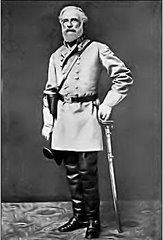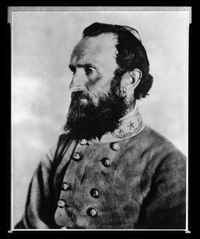
In a day filled with surprises, junk food, and many secular traditions, it is very easy to forget the meaning of the season. If you didn’t know any better, you would think I was referring to Christmas. But believe it or not, I am referring to Halloween. That’s right y’all, I am making the case that “The Devil’s Holiday” itself is actually a day filled with unique Christian tradition.
The origins of Halloween has secular and pagan roots. In the Celtic world of some 2,000 years ago, the New Year began on November 1. This day was the end of summer and the beginning of the dark and cold season. This time of year became associated with death, and it was soon believed that the night before November 1 the worlds of the living and dead became blurred. Such traditions of wearing costumes became prevalent. Thus, we have an early form of the Halloween tradition, and obviously,
this is very pagan.

But some few hundred years into the Middle Ages, Pope Boniface IV designated November 1 as “All Saints’ Day.” This was a day set aside by the Christians to honor all Christian Saints, especially martyrs. This does not mean that the Christians worship the Saints themselves any more than Mother’s Day means we worship Mothers, or President’s Day means we worship the Presidents. This was a Christian holiday that was set aside to thank God for raising up men and women in the Church who would be willing to live and even die for the cause of Christ. The blood of the martyrs is the seed of the church.
Another term for Saints is “Hallowed ones.” Thus, another name for All Saints’ Day would be “All Hallows’ Day.” Hence, October 31 became known as “All Hallows’ Eve,” and eventually, “Halloween.”
So how did the Christian holiday of Halloween blur with the Celtic traditions of November 1 and the night before? Many people believe that the Pope had intentionally made November 1 All Hallows’ Day to replace the Celtic holiday. Christians have been known for doing this sort of activity over the years to mock pagan rituals that deny the Truth of the Gospel. Even such traditions of dressing up could have been used by the Christians to symbolically scare off demons from hampering the spread of the Gospel. It was a day in church history where the Christian could be proud of who he or she was, could mock the enemies of God, and be thankful for the rich Christian history he or she was apart of.
This does not mean that the Christian’s relied on pagan ritual for the support of their worldview. Rather it means that even prevalent pagan traditions fall short of the Gospel when the Gospel is spread. “Mocking” the enemies of God did not mean that we wage war on everyone who is not Christian; rather it means we show the non-believers just how sharp of a Sword the Gospel is, that it can pierce through anything that attempts to hinder the spread of the Gospel.

On October 31, 1517, Martin Luther nailed (or perhaps mailed as some believe), his 95theses. The timing could have been intentional by Luther to make his 95 theses public on the eve of All Hallows’ Day. Thus right in the midst of All Hallows’ Day, we celebrate the Reformation and the brave Saints who gave their lives for the preservation and reforming of the Church.

So tonight as you go trick-or-treating, or walk around at your church’s Fall Festival, or whatever it is you do, I encourage you to think about God’s Church, the Bride of Christ. Think about the brave men and women who have pledge their lives for the Gospel. May we do the same. May we rise again as the lion hearted Saints of early Christendom. May we seek the unity of the Body of Christ, by tearing down denomination’s walls that keep us from piercing through our enemies with the Gospel, and worshiping God in Spirit and in Truth. May we remember the Saints of early Christianity who faced persecution in Rome, the Reformers Martin Luther, John Knox, John Calvin, Ulrich Zwingli, and Martin Brucer, the brilliant Christian thinkers and writers who pledged their lives to studying God’s Word, i.e. C.S. Lewis, Peter Leithart, etc, and the Christian’s today who are facing persecution for spreading God’s Word, i.e. Roy Moore. May we stand together now as Saints and stand up for God. If it means giving up our lives, then may our blood become part of the seed of the Church.
Halloween may have origins in paganism. But when the Gospel took hold, the Pagan rituals did not stand scrutiny to the Sword of God. As Christian’s, we cannot let the Pagan’s take back the Holiday that we have won. This has unique Christian tradition. If you are an enemy to God, then you may enjoy Halloween tonight as you celebrate it with pagan intentions – that is, until the Gospel comes knocking on your door saying “Trick or Treat?!”
What do you think?
Trick or Treat?
God bless America
God bless His Church
Happy Halloween
October 31, 2008
Ryan Hampton









